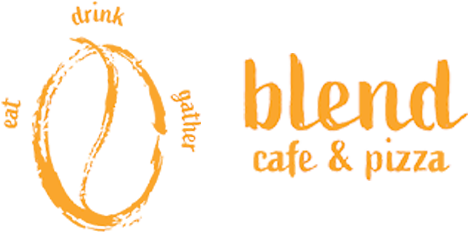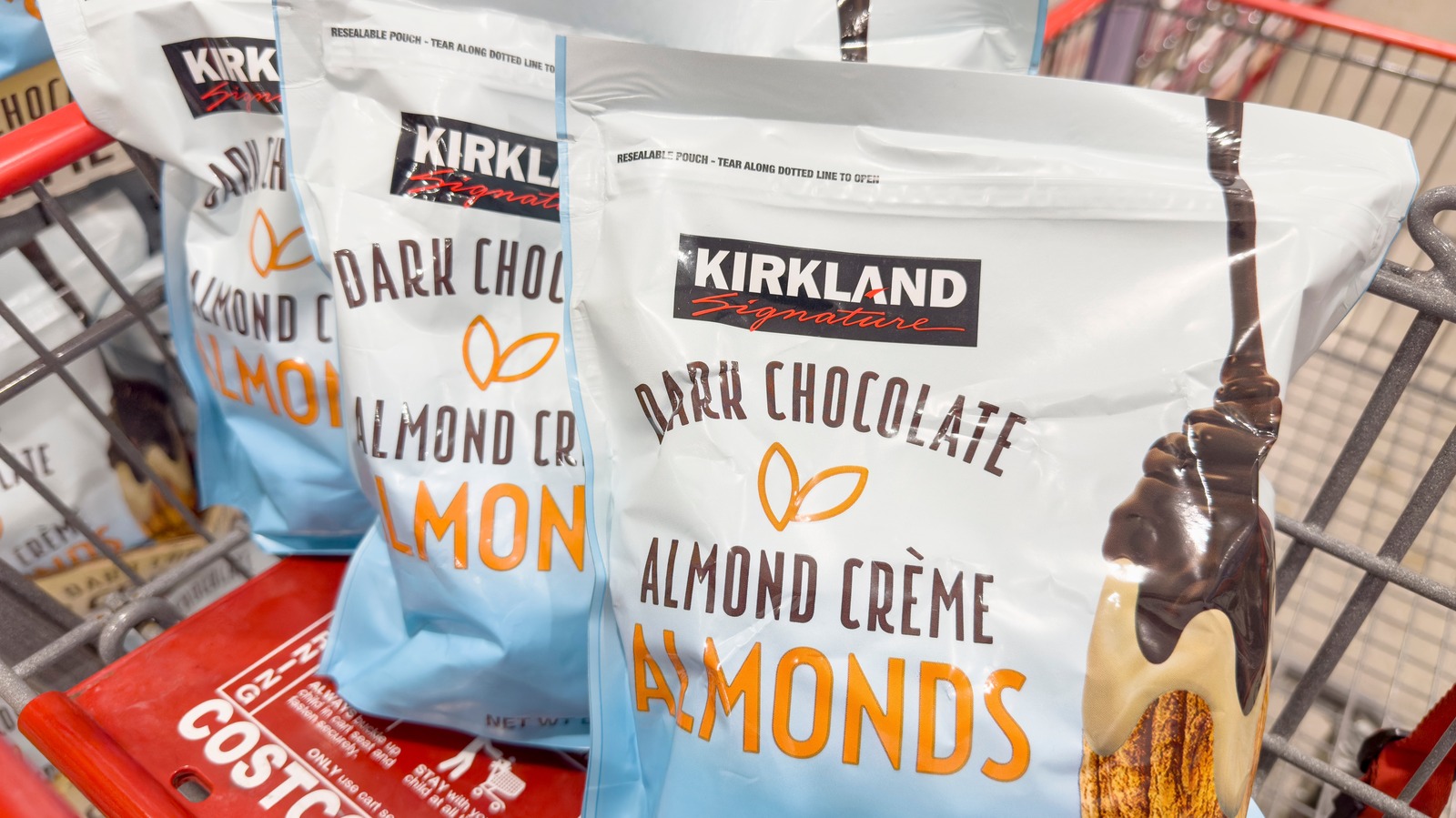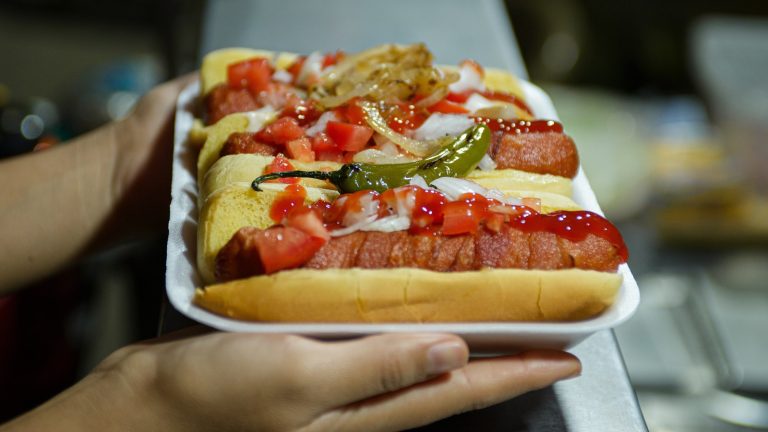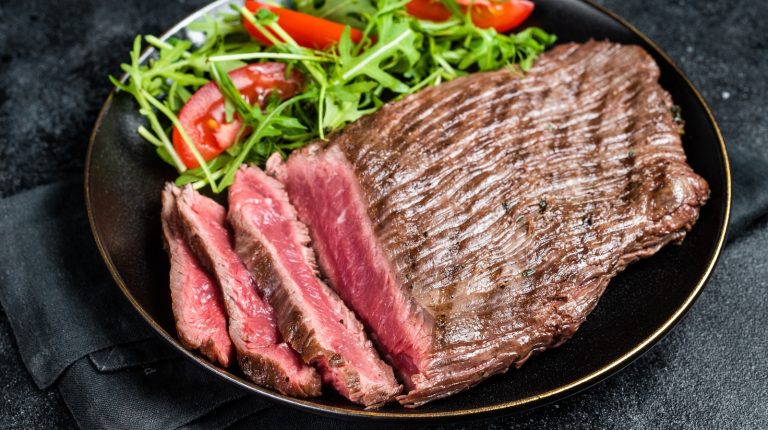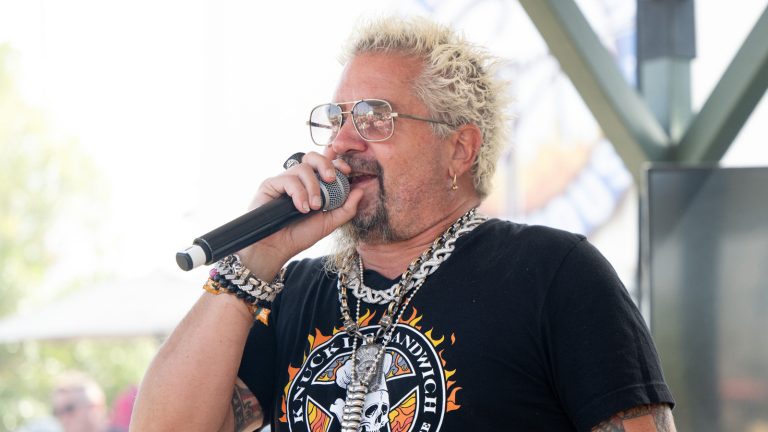Any avid Costco shopper who knows all the Costco shopping hacks like the back of their hand has surely brought many a Kirkland Signature item home from their shopping trips. The brand is so beloved among the wholesaler’s fans that it’s nearly become synonymous with Costco — especially since it’s the only private brand owned by the store. Launched in 1995, Kirkland Signature has now been around for three decades and has seen exponential growth throughout that time. Selling everything from baby formula to luxurious Kirkland Champagne, the brand silently dominates different markets at once and represents a massive share of Costco’s profits.
Even the most loyal Costco customers, however, might have a few questions about the way Kirkland Signature operates behind the scenes. How did the brand get its name? Which product does it sell the most of? And how does it compare in profits, when standing shoulder to shoulder with famous big-name companies? We’re lifting the veil on all this and more with these five stunning facts about Kirkland Signature that every Costco pro needs to know.
The brand is named after Costco’s former headquarters
Costco’s headquarters have always been in Washington State, but the cities have changed over the years. The very first headquarters were in a small office in Bellevue, but the company grew fast and quickly moved the office to Seattle — also the location of the very first Costco store. However, Costco HQ outgrew that location, too, and moved to Kirkland, and from there to Issaquah, where the headquarters remain to this day. So, why was Kirkland chosen as a brand name among all of these locations?
In 1995, when the brand was launched, the headquarters were actively in Kirkland. The company’s original idea was to call the brand “Seattle Signature,” paying homage to the city that housed the store’s first location. The trademark was rejected, though, forcing Costco to come up with a different name. One of the staffers suggested Kirkland Signature instead, and the rest is Costco history. The name stuck even when the home office eventually moved to Issaquah — the co-founder of Costco, Jim Sinegal, cheekily pointed out in an interview with Georgetown McDonough that “nobody could spell Issaquah.”
Kirkland Signature is not Costco’s first private brand
Private brands are booming, and most large retailers opt to have a whole lineup of them, with each covering a different type of product. Target, for example, owns 48 private brands. Walmart’s most recent own label, Bettergoods, lends its name to 300 items just in the food category. But Costco only has one private brand — Kirkland Signature. The reason for that is highly strategic: Keeping everything under one umbrella reinforces customer loyalty, prevents decision fatigue, and lowers production costs for Costco, allowing it to keep the prices significantly lower than other retailers. But that wasn’t always the case.
Costco first opened its doors in 1983, and it wasn’t until 12 years later that Kirkland Signature was born. The early years of Costco were marked with multiple private brands, the names of which might still sound familiar to those who were frequenting Costco at the time. Simply Soda, for example, was Costco’s spin on cola. It was sold in a red can with a white brand name written in cursive, overall looking very similar to the standard Coca-Cola can. Other private brands individually covered products such as toilet paper, detergent, and even dog food. Once the decision fell to launch Kirkland Signature, all of those labels were taken off the shelves and replaced with just one: Kirkland.
Kirkland Signature products are not just for Costco members — they’re also available on Amazon
Costco’s entire business model is built on annual memberships. Customers can’t shop at the store without one, though there are a few rare exceptions (such as the Costco Shop Card). Memberships start at $65 per year and go up to $130, representing the main source of profit for the warehouse chain by bringing in well over $4 billion annually. With millions of shoppers holding the membership, the store has no shortage of customers. However, Kirkland Signature still reaches beyond the membership-exclusive doors of Costco. Kirkland Signature products are available on Amazon, reaching a wider customer base and potentially even drawing new shoppers to the warehouses, should they fall in love with the brand.
There is a caveat, though — the prices on Amazon are higher. Looking at the Kirkland Organic Creamy Peanut Butter two-pack, we can see that it costs around $19 on Amazon, but it’s only priced at $12.99 at Costco. That said, Costco sometimes limits the number of certain items you can purchase at once, ensuring equal access to all customers — especially when those items are on sale. In that case, purchasing through Amazon could be a better choice if you’re in need of larger quantities. It’s also worth noting that the name-brand products you’ll find at Costco sometimes come cheaper on Amazon.
Toilet paper is the brand’s all-time bestseller
Out of the many Kirkland Signature products, none is more popular than the good ol’ toilet paper. Selling over a billion rolls annually, Costco makes $400 million on Kirkland Bath Tissue alone. Many of the brand’s products are meticulously tested in a special lab to ensure they’re matching Costco’s standards, but apparently none is tested more than the toilet paper. Lab technicians carefully test its colors and texture — sometimes with fancy equipment, and other times with the regular “scrunch and bunch” test.
But Costco is not the manufacturer of the toilet paper, or any other Kirkland Signature product for that matter. The wholesaler partners with manufacturers worldwide to create Kirkland products, often the same ones that make items for famous name brands. For toilet paper, Costco previously worked with a company called Kimberly-Clark, which owns brands like Kleenex, Scott, and Huggies. The current toilet paper partner is allegedly Georgia Pacific, which creates products for brands like Angel Soft, Sparkle, and Dixie.
Kirkland Signature is more profitable than many big-name companies, including Hershey’s and Coca-Cola
The strategy that Costco has taken, with Kirkland Signature as its only in-house brand, has absolutely been successful. The private brand generates around $56 billion annually, making it more profitable than Coca-Cola, Hershey’s, Campbell Soup, or even Nike. This proves that Kirkland Signature isn’t just a cheaper knockoff brand, but it’s actually become somewhat of a household name. That’s probably the reason why some big-name brands have opted to co-brand their products with Kirkland Signature.
There are some interesting brands behind your favorite Kirkland products, brands that far precede the reign of Costco and have been standing in their own right for a very long time. One such example is Jelly Belly, the iconic jelly bean brand that’s been around since 1869. Still, it opted to co-brand with Kirkland Signature (that is, allowing both names to be clearly written on the package) to get its jelly beans on the shelves of Costco. Another example is Starbucks — the coffee shop giant was co-branding on Kirkland Signature’s House Blend whole bean coffee until early 2024. The partnership ultimately ended, but you can still snag a bag of the co-branded java on Amazon.
